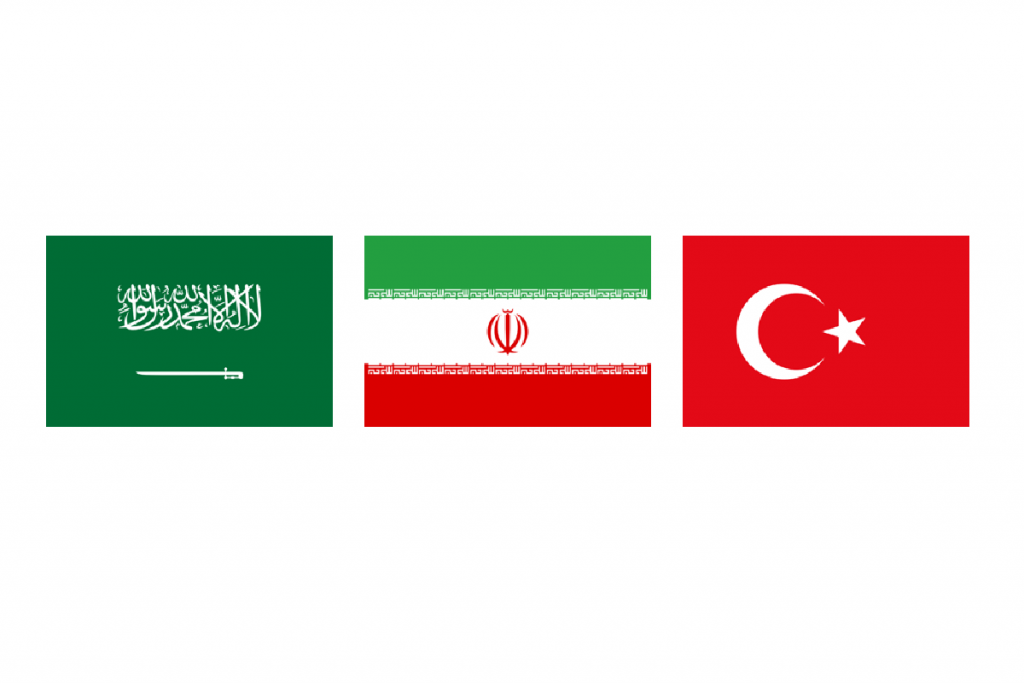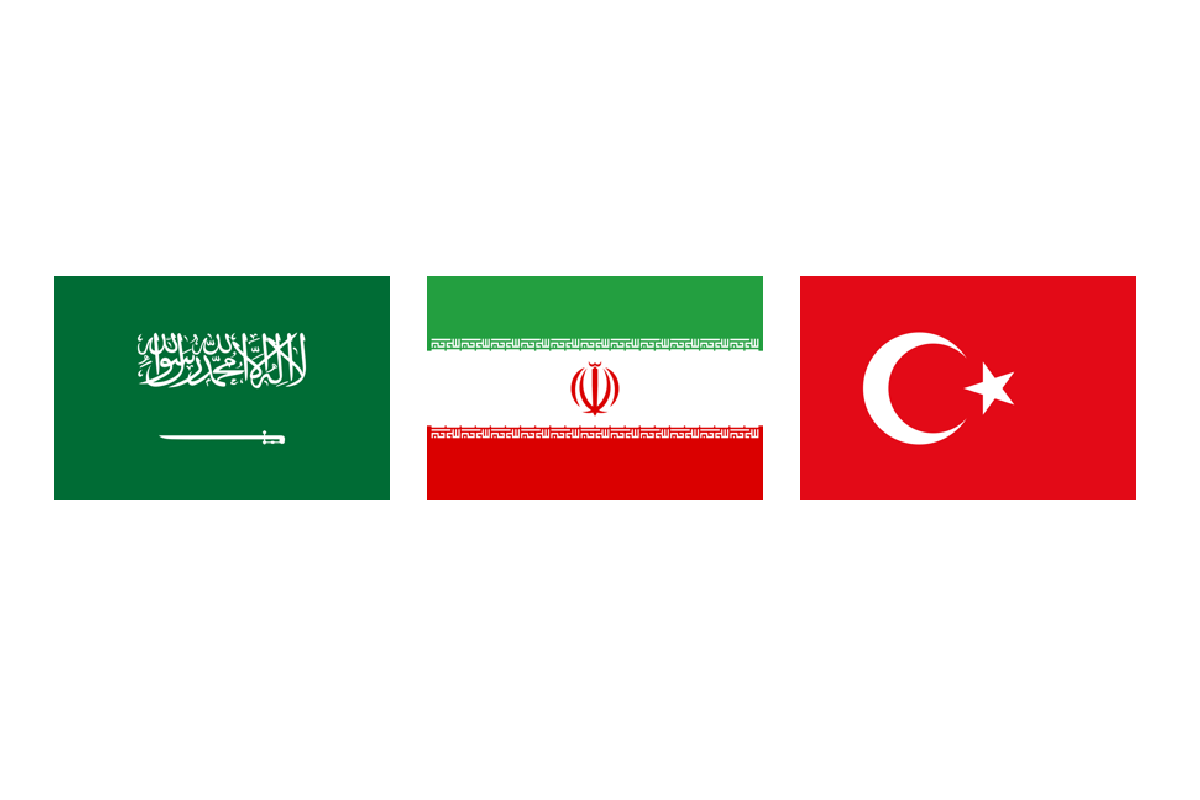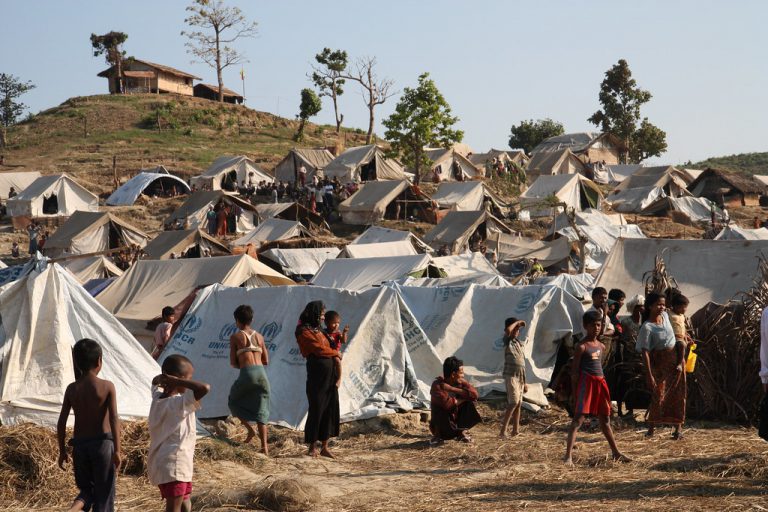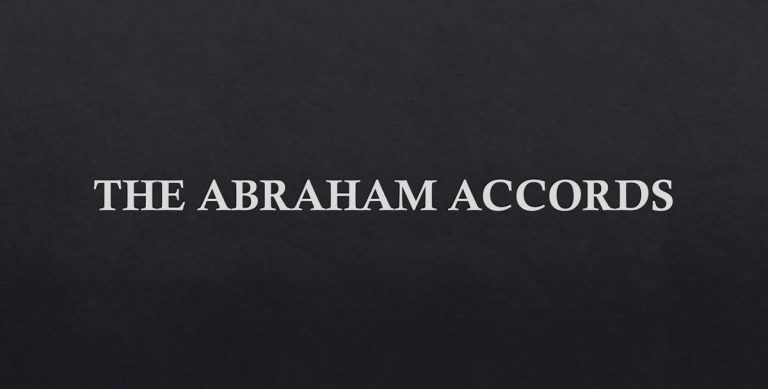Tripolar Geopolitics: The Middle East Conundrum

Since the signing of the historic Abraham Accords roughly four months ago, about which I wrote in my last article, a lot has happened in the Middle East. Looking from a distance, the region seems to be in disarray. However, there is a pattern to the events, which I believe can be classified into three broad categories. Firstly, efforts are being made towards continuous rapprochement between Israel and the Arab world. Secondly, Iran is steadily being side-lined in the power battle contested in the Middle East. Lastly, Turkey is trying extremely hard to punch above its geopolitical weight and project itself as the custodian of Islamic world. The once bipolar Middle Eastern politics, aligned heavily either towards the Iranian or the Saudi interests, has witnessed a third pole with the resurgence of Turkey. Although other powers like the USA, Russia, China, European Union (EU) and India have roles to play, I think that the seemingly unconnected events can be visualised as fitting into either of the aforementioned categories. In this article I attempt to explain these categories, while explicitly stating that this categorisation isn’t exhaustive and can vary as per reader’s discretion.
Rejig in the Arab Order
Last couple of months have been unprecedented for the Arab-Israel relations. The United Arab Emirates (UAE), Bahrain, Sudan and Morocco have made varying progress to mend relations with the Jewish majority state. While the former two conducted public ceremonies in Washington D.C. to herald an era of cooperation with Israel, the latter two did so with relatively little fanfare and that too when the US presidency is undergoing a messy transition. Pakistan and Qatar are possibly in the pipeline too.
Sudan has managed to secure a good deal through the normalisation spree, seeing itself removed from the ‘State Sponsor of Terrorism’ List by the US state department. This is a significant development, given that Sudan once sheltered Osama Bin Laden, who was responsible for the attacks on the USA via land (1998 embassy bombings in Kenya and Tanzania); sea (2000 USS Cole bombing) and air (2001 9/11 attacks). However given the deep economic crisis Sudan is in, the development is a logical step as it would facilitate international aid into the country.
Restoring cordial ties between Israel and Morocco has been accompanied by the recognition of Morocco’s sovereignty over Western Sahara by the outgoing US administration. This cast aspersions over the right to self-determination of the Sahrawi people, as well as the Polisario Front led Sahrawi Arab Democratic Republic’s government in exile, who have been fighting Morocco for Western Sahara’s independence for the past five decades.
The diplomatic standoff between the Gulf Cooperation Council (GCC) and Qatar, which started in 2017, seem to be at the verge of being resolved. The recently concluded 41st GCC summit is a step in that direction. For Qatar, which has so far allied with Turkey in the Syrian & Libyan conflicts and maintained close relations with the Muslim Brotherhood; this would probably pave the way towards normalising ties with Israel.
There are indications that Pakistan is being pressurised by the so called ‘sister countries’ to officially recognize Israel. Pakistan is the second largest Muslim majority country after Indonesia. It only seems logical that Pakistan recognizes Israel before the Saudis do, since the Saudis don’t wish to be seen as too eager to support Israel due to the compulsions of domestic politics. The secrecy maintained over the alleged meeting in Saudi’s Red Coast city of Neom between the outgoing US Secretary of State Mike Pompeo, Israeli Prime Minister Benjamin Netanyahu, Mossad’s Director Yossi Cohen and Saudi crown prince Mohammad Bin Salman; shows that the Saudis would work behind closed doors for now and won’t publicly display affection towards Israel anytime soon.
Complications for Iran
The growing closeness between Israel and the Arab world has a direct bearing on Iran’s hegemony in the Middle East. Israel has been able to consistently neutralise high value targets in Iran. The latest in a string of assassinations is that of Mohsen Fakhrizadeh, Iran’s top nuclear scientist, who held the rank of Brigadier in the Islamic Revolution Guard Corps (IRGC) and was instrumental in spearheading Iran’s nuclear weapons program. Prior to that, Abu Muhammad al-Masri, an Al-Qaeda terrorist charged with involvement in the 1998 embassy bombings, was allegedly killed by Israeli operatives in Tehran. Though officially denied by the Iranian regime, Israel’s history of undertaking successful assassinations outside its borders makes it hard to dismiss this killing. Roughly a year ago, IRGC’s top commander Qassem Soleimani was killed by the US in an airstrike at Baghdad airport. Apart from eliminating personalities important to the Iranian regime, Israel had repeatedly made attempts to sabotage Iran’s nuclear program through preventive strikes on strategic installations and cyber warfare. Arab states joining ranks with Israel is part of the larger plan to contain Iran’s regional influence.
Turkey’s Resurrection
In his critically acclaimed book ‘The Next 100 Years: A Forecast for the 21st Century’, the geopolitical strategist George Friedman predicted the rise of Turkey as a major global power. Under Erdogan’s leadership, Turkey has embarked upon this difficult quest. As a NATO member, Turkey boasts of a strong military, arguably rivalled only by Israel in the region. But it has stayed under the radar since the dismemberment of Ottoman Empire after the First World War. However, Turkey’s attitude is changing and it now strives to carve a niche for itself. This is easier said than done as its competitors, i.e., Saudi Arabia and Iran, are already deeply entrenched in the region.
Turkey’s use of mass media as a tool of soft power projection is remarkable. The popular TV series ‘Diriliş: Ertuğrul’ portrays the story of a Central Asian tribe which migrates to Anatolia. The Ottoman Empire derives its name from its founder Osman I, who was the son of the series’ protagonist ‘Ertuğrul’. The show has been applauded within and outside Turkey, particularly in Pakistan, where Imran Khan’s government got it dubbed into Urdu for wider reach. This exemplifies growing proximity between the two countries.
Turkey has for long demanded membership of the European Union (EU). A large number of Turkish migrants already live and work in EU countries, notably in Germany. Nonetheless, the membership prospects look bleak under the current Turkish government due to allegations of human rights abuses against its Kurdish population, as well as deteriorating relations with France, Greece and Cyprus over several issues.
Turkey has been flexing its military muscles too. However estranged Turkey and Israel may seem, both shed their differences to work together to help Azerbaijan during the recently concluded Nagorno-Karabakh conflict.
Conclusion
It is safe to say that issues based alliances are taking precedence over ideological ones. The normalisations will eventually bring down the bargaining power of Palestinians fighting for their own state and may see a rise in Iranian support for their cause in forms of arms, intelligence and other material/ideological support. Israel is a developer of critical military technologies and equipment and can find markets among its new Arab friends, the way it did with Azerbaijan. This would strengthen strategic ties between the countries.
It won’t be surprising if Bangladesh follows into the footsteps of Arabs. Bangladesh is a peripheral power among Muslim majority nations and is less likely to resist the trend that the UAE had started. Recognition by Bangladesh will not just be a major credential booster for Israel but would also be a notable diplomatic gain for India. The year 2021 has symbolic significance for Indo-Bangladeshi relations as it marks the 50th celebration of Bangladesh Liberation War in which India played a crucial role. If Bangladesh recognizes Israel this year, it would be a bonus for India.
Nevertheless, the regional and global players should exercise caution to ensure that recent developments don’t spiral out into new proxy wars. Let’s hope that the future takes a safe course.
References
- Suman,S. (2020, October 8). Geopolitics of Arab – Israel Peace. Retrieved January 3, 2021, from https://armchairjournal.com/geopolitics-of-arab-israel-peace/
- Pompeo, Michael R.. U.S. Department of State. Press Statement. (2020, December 14). Sudan’s State Sponsor of Terrorism Designation Rescinded. Retrieved January 3, 2021 from https://www.state.gov/sudans-state-sponsor-of-terrorism-designation-rescinded/
- Holland, S. (2020, December 10). Morocco joins other Arab nations agreeing to normalize Israel ties. Retrieved January 3, 2021 from https://www.reuters.com/article/us-israel-usa-morocco/morocco-joins-other-arab-nations-agreeing-to-normalize-israel-ties-idUSKBN28K2CN
- The Arab Weekly. (2021, January 6). GCC summit is short on reconciliation details despite positive tone. Retrieved January 9, 2021, from https://thearabweekly.com/gcc-summit-short-reconciliation-details-despite-positive-tone
- IANS. (2020, November 14). Under pressure to recognize Israel, says Imran Khan. Retrieved January 3, 2021, from https://www.newindianexpress.com/world/2020/nov/14/under-pressure-to-recognize-israel-says-imran-khan-2223684.html
- Holmes, O. (2020, November 23). Netanyahu holds secret meeting with Saudi crown prince. Retrieved January 9, 2021, from https://www.theguardian.com/world/2020/nov/23/benjamin-netanyahu-secret-meeting-saudi-crown-prince-mohammed-bin-salman
- Kleinman, Z. (2020, December 7). Mohsen Fakhrizadeh: ‘Machine-gun with AI’ used to kill Iran scientist. Retrieved January 3, 2021, from https://www.bbc.com/news/world-middle-east-55214359
- Goldman, A.|Schmitt, E.|Fassihi, F.|Bergman, R. (2020, November 13). Al Qaeda’s No. 2, Accused in U.S. Embassy Attacks, Was Killed in Iran. Retrieved January 9, 2021, from https://www.nytimes.com/2020/11/13/world/middleeast/al-masri-abdullah-qaeda-dead.html
- Inayat, N. (2020, May 14). Imran Khan is binge-watching Ertuğrul during Covid, recommending Turkish shows to Pakistanis. Retrieved January 3, 2021, from https://theprint.in/opinion/letter-from-pakistan/imran-khan-binge-watching-ertugrul-covid-turkish-shows-pakistanis/421116/
- Gabon, A. (2020, October 30). France-Turkey showdown: A battle to shape the regional order. Retrieved January 13, 2021, from https://www.middleeasteye.net/opinion/france-turkey-showdown-battle-shape-regional-order
- Melman, Y. (October 9, 2020). Azerbaijan-Armenia conflict: How Israel and Turkey became strange bedfellows. Retrieved January 13, 2021, from https://www.middleeasteye.net/news/azerbaijan-armenia-conflict-israel-turkey-strange-bedfellows
- Raja Mohan, C. (2020, December 1). India, Pakistan and Bangladesh must deal with changed geopolitical realities in West Asia. Retrieved January 13, 2021, from https://indianexpress.com/article/opinion/columns/mohsen-fakhrizadeh-iranian-nuclear-scientist-assassination-india-middle-east-relations-7074505/








